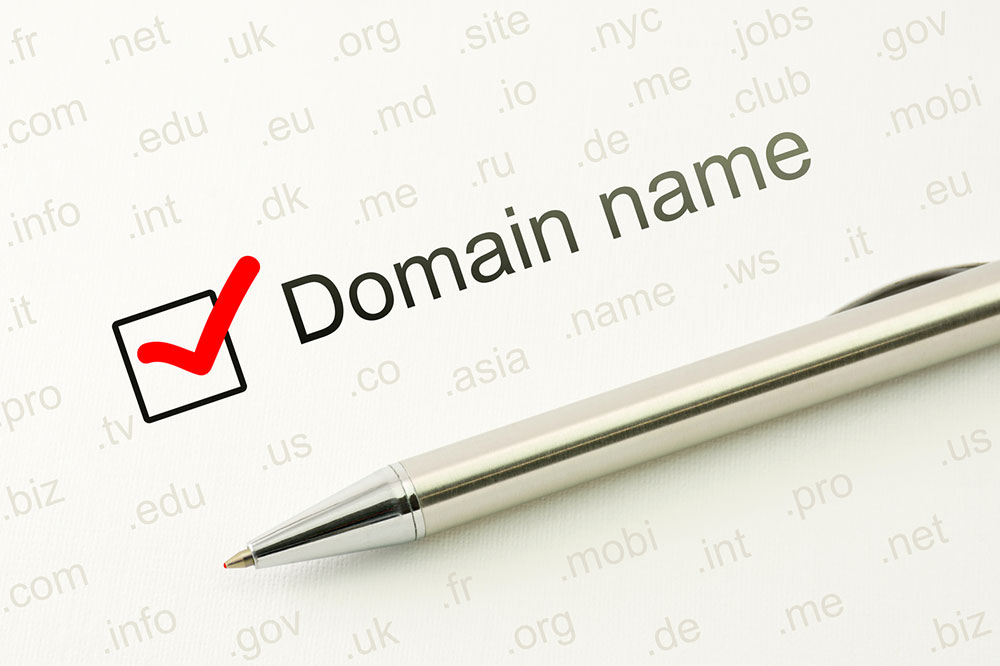Four Essential Strategies to Choose the Perfect Domain Name for Your Website
Discover Four comprehensive strategies to choose the perfect domain name that boosts your brand, enhances credibility, and ensures long-term success. From prioritizing .com extensions to avoiding legal pitfalls, this guide offers essential tips for building a memorable online identity.

Choosing the right domain name is a fundamental step in establishing a successful online presence. Your domain acts as the digital address for your website and plays a crucial role in branding, search engine rankings, and user recall. An effective domain name not only attracts visitors but also reinforces your brand identity, making it easier for your audience to find and remember you. However, selecting the perfect domain requires careful thought and strategic planning. In this comprehensive guide, we will explore four vital strategies that will help you pick a domain name that aligns with your goals and ensures long-term success.
Prioritize ".com" Extensions for Trust and Recognition
The most widely accepted and trusted top-level domain (TLD) is ".com". Despite the proliferation of alternative extensions such as ".blog," ".shop," ".net," ".org," and many others, ".com" remains the dominant choice for both consumers and businesses. According to industry studies, nearly 47% of all websites utilize a ".com" domain, highlighting its prominence and trustworthiness. When users see or hear a ".com" extension, they instinctively perceive the site as credible and established, which can significantly influence click-through rates and user engagement.
If your desired ".com" domain name is already taken, consider variations that still maintain brand clarity. You might add relevant keywords, locations, or suffixes to find an available alternative. Additionally, reaching out to current owners for potential purchase or leasing options can be a worthwhile investment in securing a high-value domain that enhances your online credibility.
Focus on Brandability Instead of Generic Keywords
Your domain name should serve as the foundation of your brand identity. While keyword-rich, generic domains might seem advantageous for SEO, they often lack distinctiveness and can be forgettable over time. The goal is to create a domain that is unique, memorable, and capable of embodying your brand's personality and values. Think of your domain as a digital handshake — it should stand out, evoke positive associations, and foster brand recall.
Create a name that is easy to spell, pronounce, and visually appealing. Consider inventing a new word or combining existing words in a creative way to develop a memorable brand name that resonates with your target audience. For example, tech giants like Google and Yahoo used distinctive names that contributed to their brand dominance. A strong, brandable domain helps you carve out a niche in your industry and builds lasting recognition.
Avoid Trademark Conflicts to Protect Your Business
Legal issues related to domain names can be costly and damaging. Before finalizing your choice, conduct thorough trademark searches to ensure your desired domain does not infringe on existing trademarks. Registering a domain that conflicts with a registered trademark can lead to legal disputes, potential domain loss, and the need to rebrand — all of which can be disruptive and expensive.
You should use trademark databases and search engines to verify that your domain name is unique and legally available. This proactive step helps safeguard your brand and ensures long-term stability. If in doubt, consult with legal professionals specializing in intellectual property to avoid future complications.
Keep Your Domain Short, Simple, and Easy to Remember
Shorter domain names are generally more effective, memorable, and easier for users to recall. Ideally, aim for a domain length of around 12 characters; however, a length between six and fourteen characters is acceptable. Short domains are less prone to typos and misinterpretations, which naturally enhances user experience and access.
Furthermore, simplicity is key. Avoid using complex spellings, hyphens, or numbers that can confuse visitors or complicate sharing across platforms. A concise, straightforward domain allows for quick recognition and effortless typing, making it more likely that visitors will return or recommend your site to others.
In summary, thoughtfully selecting your domain name with these four strategies ensures you establish a strong, memorable, and legally sound online identity. Remember, your domain is often the first impression users have of your business, so investing time and effort into choosing the right one is crucial for your digital success.





